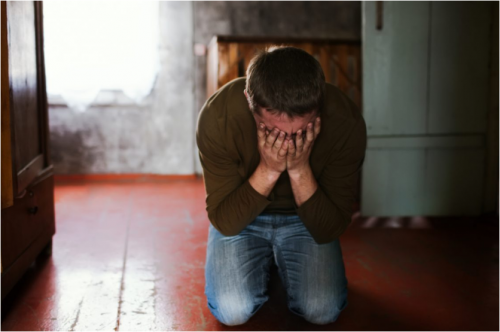What Are The Types Of Anxiety Disorders?
December 13, 2019
Are you aware that there are several kinds of anxiety disorders? In this article, we are going to present to you these various classifications as well as a short description of each type. We believe that knowing these matters can help you become more sensitive to people with anxiety. “Many people believe that anxiety isn’t something worth assessing,” psychiatrist Dr. Allison Baker says. “But it’s important to treat anxiety, especially in children and teens. If untreated, it can be associated with an increased risk of depression.”
If you are the one who has this type of disorder, then make sure to read the rest of this article so that you will know how to deal with your anxiety in the best manner possible:

Source: pixabay.com
Panic Disorder
It refers to the kind of anxiety disorder wherein the person affected suffers from sudden attacks. The attacks usually take place when there is a triggering factor such as intense fear or terror. There are different manifestations of this kind of disorder, such as dizziness, nausea, and shaking. The panic attacks can be as short as ten minutes, but it can last up to one hour, depending on the situation.
Social Anxiety Disorder
A person who is always afraid of being judged negatively can be clinically diagnosed with an anxiety disorder. This individual usually has low self-esteem and is afraid to act in public because of the fear that it may result in ridicule or embarrassment. An excellent example of this is someone who has extreme stage fright.
However, “We tend to think of social anxiety as encompassing fears of being embarrassed, not living up to a certain standard, or having our shortcomings exposed,” wrote Amelia Aldao Ph.D., LCP. She explains, “But many people also experience social anxiety about receiving positive feedback and being the center of “good” attention—for example, being praised for a job well done, getting a good evaluation, or being nominated for an award.”

Source: flickr.com
Post-Traumatic Stress Disorder (PTSD)
When someone goes through a traumatic experience or a major life-changing event, there is a high possibility that he will have PTSD or post-traumatic stress. The condition is just a natural effect of the difficulty that the said individual has experienced. The trauma is usually caused by sexual assault, life-threatening accidents, or compromising situations. A person with PTSD shows a behavior that is hard to understand.
Separation Anxiety Disorder
Extreme or severe levels of anxiety characterize this kind of disorder. It is the type of condition that is a result when an individual is separated from a place or person that provides a distinct feeling of intimacy. When the said person separates from someone who has provided him with security and love, there is a high tendency that he will suffer from this type of anxiety disorder.

Source: flickr.com
Obsessive-Compulsive Disorder (OCD)
It is one of the typical kinds of anxiety disorders, which is characterized by actions or thoughts that are repetitive. The person with OCD is most likely to have compulsions that are irrational or unreasonable. The truth is that the said individual has no control over these compulsions. For this reason, he may become challenging to handle. Aside from this, OCD is also present when a person wants everything to become perfect or flawless.
Do not easily believe or agree with what you read online or from other resources. Be sure to double-check the information or article before absorbing it. Always remember that the best thing to do is to call a psychiatrist if you have symptoms and signs of any of the anxiety disorders mentioned above.
“While self-help coping strategies for anxiety can be very effective, if your worries, fears, or anxiety attacks have become so great that they’re causing extreme distress or disrupting your daily routine, it’s important to seek professional help,” wrote Melinda Smith, MA, and Jeanne Segal, Ph.D. “If you’re experiencing a lot of physical anxiety symptoms, you should start by getting a medical checkup.”
To learn more about this condition, do not hesitate to visit the BetterHelp site today. You will enjoy the topics discussed here. In addition, BetterHelp has an online mental health app tool that you can subscribe to whenever you want to talk to an experienced counselor about your worries and anxieties. Learn more about it through these client reviews. Have a peaceful and stress-free life!